
Seeking Touch of Humanity in Inclusive World of Coffee
Samuel Perez Correa joined TYPICA’s Europe team as a community manager in January 2022. Ever since, he has built relationships with coffee roasters mainly in Spain and the United Kingdom to increase the volume of trade on the company’s online platform.
A native of Spain, Samuel describes himself as “quiet and chill,” unlike the stereotypical Latino. He is from the Canary Islands, dubbed a paradise in Europe. Samuel’s love affair with coffee started during his two-year stay in Melbourne, Australia. After moving to London and honing his roasting skills at a roastery in the city, he worked several freelance jobs, including as a wholesale manager for roasteries and a certified Specialty Coffee Association trainer.
What prompted Samuel to take on a new role as a bridge between coffee producers and roasters, after spending nearly 10 years in the world of coffee? What are the goals he wants to achieve at TYPICA? This is the story of Samuel Perez Correa.
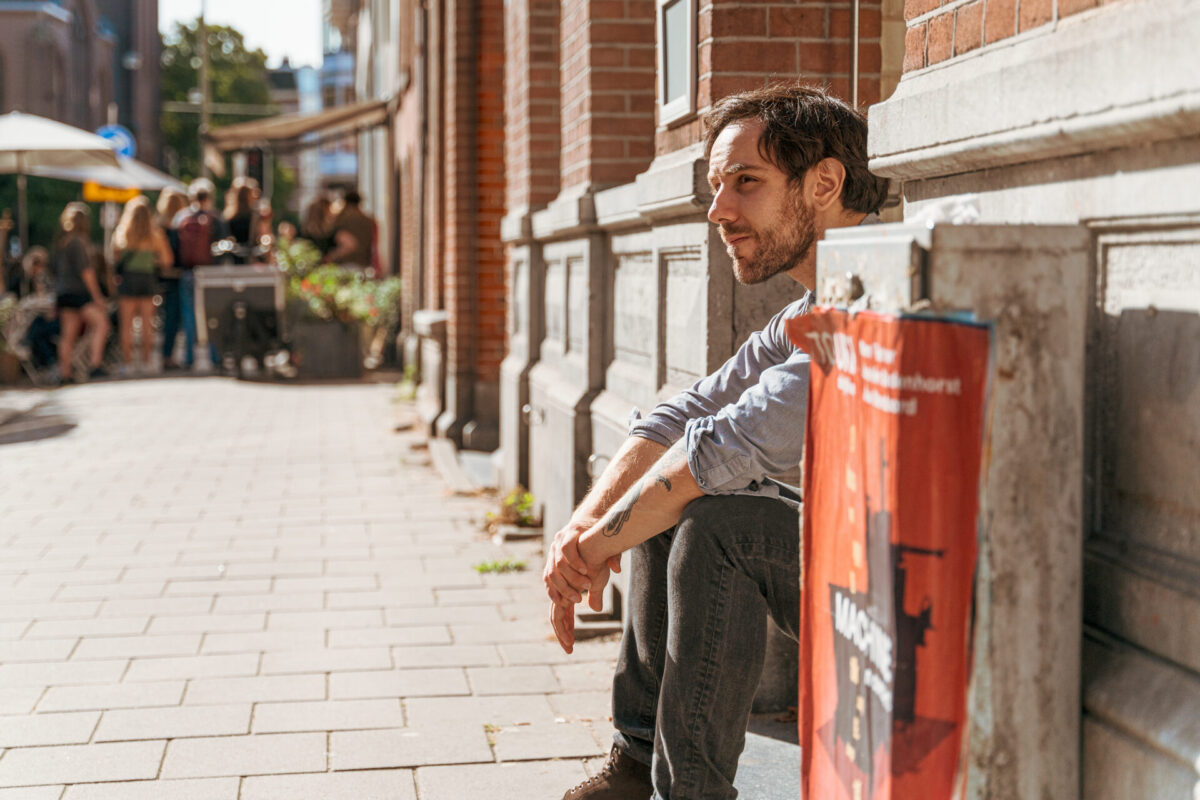
Craving for human connection
In the spring of 2020, the novel coronavirus spread around the world in a blink of an eye, bringing with it a seismic shift in people’s ways of life and working styles. The UK imposed a nationwide lockdown in response to an enormous number of Covid-19 cases. To stem the tide of infections, the government ordered citizens to stay at home, except for very limited purposes.
The pandemic upended people’s lives. Among them was Samuel, who was head roaster at a coffee roastery in South London at the time.
Commuting on a deserted train for 1 hour, roasting batch after batch by himself for up to 9 hours, and setting off on the way home on a deserted train became his normal for a few months. Samuel was struggling, a relentless wave of solitude washing over him. He was craving for interaction with others, each day more than the day before.
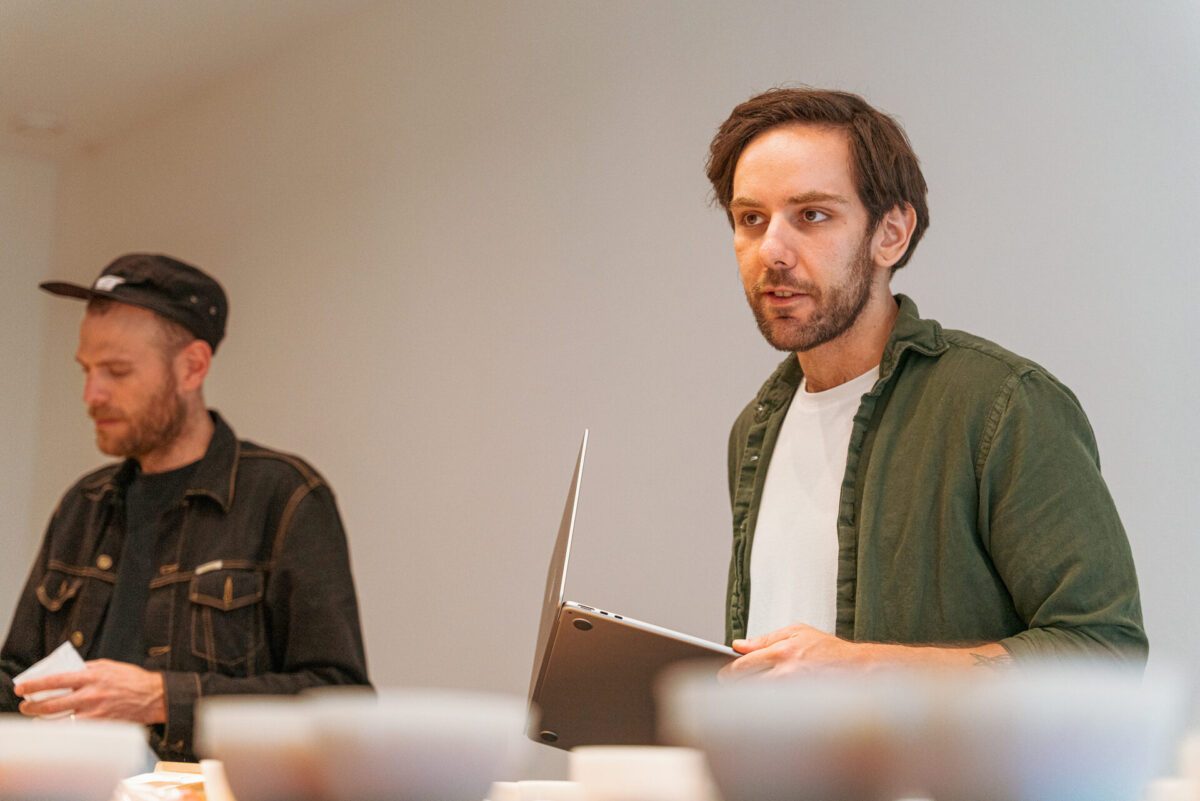
To throw himself into a human-facing environment, Samuel started to look for a new opportunity. He started by obtaining certification as an SCA trainer and teaching homeless people how to roast coffee to help them find jobs. He also worked as a wholesale manager and consultant for a number of roasteries in London, helping cafes to increase the quality of their coffee.
It’s not in Samuel’s nature to stay in his comfort zone. As he yearned to dive into a completely different world, TYPICA came to mind. He knew TYPICA because he was invited by a colleague to join TYPICA’s cupping event in October 2021.
“That’s when I found out about TYPICA for the first time. Eventually, I couldn’t make it to the cupping event. But I aligned with TYPICA’s efforts to enable producers to set prices of coffee themselves and promote direct trade. TYPICA’s way of seeing the coffee chain really connected with me. “
Samuel did have his share of concerns. Moving to Amsterdam, where TYPICA’s Europe base is located, and working for a Japanese company were uncharted territory for him. But what ultimately pushed him to choose a new career path was his desire to work more closely with coffee producers and green coffee. Job interviews with TYPICA were unlike any he’d had before.
“I was interviewed by (co-founders) Masa and Ayane each. It was my first time taking a job interview through an interpreter. When you are in a job interview, the tone of voice, the way you speak, or the words you use are very important. I wasn’t sure if my intentions were getting across precisely. I kept thinking about that after my interviews.
I was asked many questions about myself as a person, such as where I see myself in the future, what I like to do, what my hobbies are. That was interesting because other companies tend to ask about my past experience and not much about my personal side.”
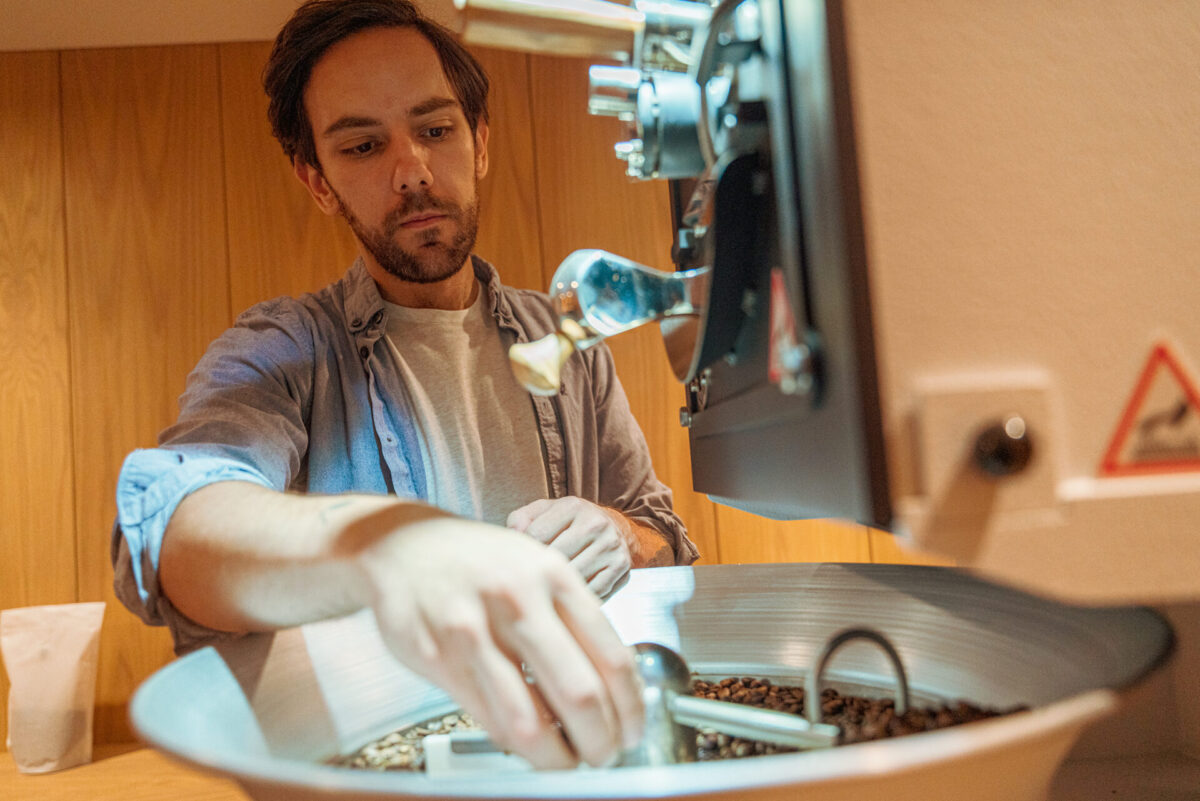
About 6 months have passed since Samuel joined TYPICA in January 2022. Each day at TYPICA brings something new to his life. Now, he believes he made the right career choice.
“It’s exciting to get to meet and talk with roasters. Spain is especially interesting because the country doesn’t have an established specialty coffee market yet, and it’s just about to expand. I feel like a new specialty coffee shop opens in Spain every two weeks or so. No one hasn’t figured out an answer yet, so the market is open to all possible options. Everyone is super excited.
I do have strength as a former roaster myself. But it’s still difficult to gain trust from roasters. Trust isn’t something you can put on the spreadsheet or turn into numerical data. There is no winning formula. What’s more, trust is fragile. No matter how hard you work to gain trust, once you damage it, you need to put in double or triple the time and effort to build it back.
For me personally, building trust with roasters is like building a friendship and actually connecting with them. It’s not just for hitting KPIs. I want to connect with them in a sincere, humane way.
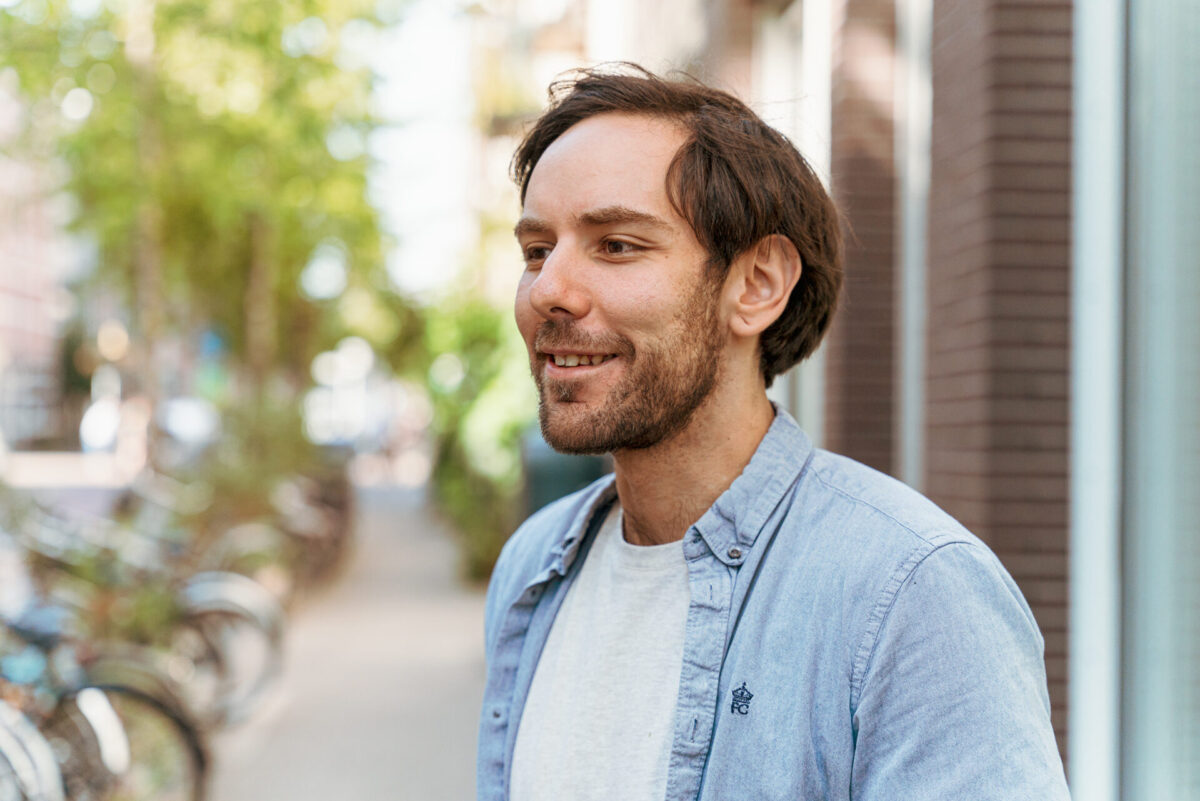
Touch of Humanity
Samuel wasn’t always a coffee lover. For him, coffee was just coffee, nothing more or nothing less. That changed when he moved abroad to Melbourne when he was 20 years old. Living overseas was expensive. Worse yet, he was just a student. “I was broke,” he recounts. Looking for a job to pay the bills, he came across an advert for a position at a cafe.
“Australia’s coffee industry is far ahead of others. I think that’s part of the reason I started to like coffee. I didn’t know that coffee was a seasonal product. For example, a certain coffee tastes good in October. I learned about that for the first time in Australia. That completely shifted my perspective on coffee, and I was drawn deeper and deeper into the world of coffee.”
Still, Samuel’s dream was to become a graphic designer. After returning to Spain, he worked as a freelance graphic designer and photographer for a year in Madrid and later in London.
He was in his mid-20’s, that time of life where various things can tickle your curiosity. Just following where his heart took him, Samuel started to work at a roastery in London, too. That was in 2013. London – now Europe’s biggest specialty coffee market – was just beginning to grow bigger back then, which served as an added appeal for Samuel.
“Coffee roasting used to be like food manufacturing. It still is. But before specialty coffee, roasting was done by people who just followed certain protocols at some factory-like production site. But with the rise of specialty coffee, roasting has been seen more as an artform or artisanal craft. That change is still underway.
Specialty coffee gives me room to be creative. You can create amazing things in specialty coffee. That’s what attracts me. Works of art take on more meaning when you have the language to communicate your intentions. I think that’s more or less the same for roasting, too.
Samuel, now 35 years old, has been into analog cameras since he was in his teens. His favorites are 1980’s Polaroid cameras, the kind that develops prints on the spot.
“Digital photos are easy to transfer and edit. You can make the images exactly as you want. On the other hand, analog photos feel more subjective and alive. After all, I think I prefer more real, humane things. I think this is similar to the joy of working in a market in its early days. Because there are no established protocols or rules to follow, and everyone tries to learn new things on the fly.”
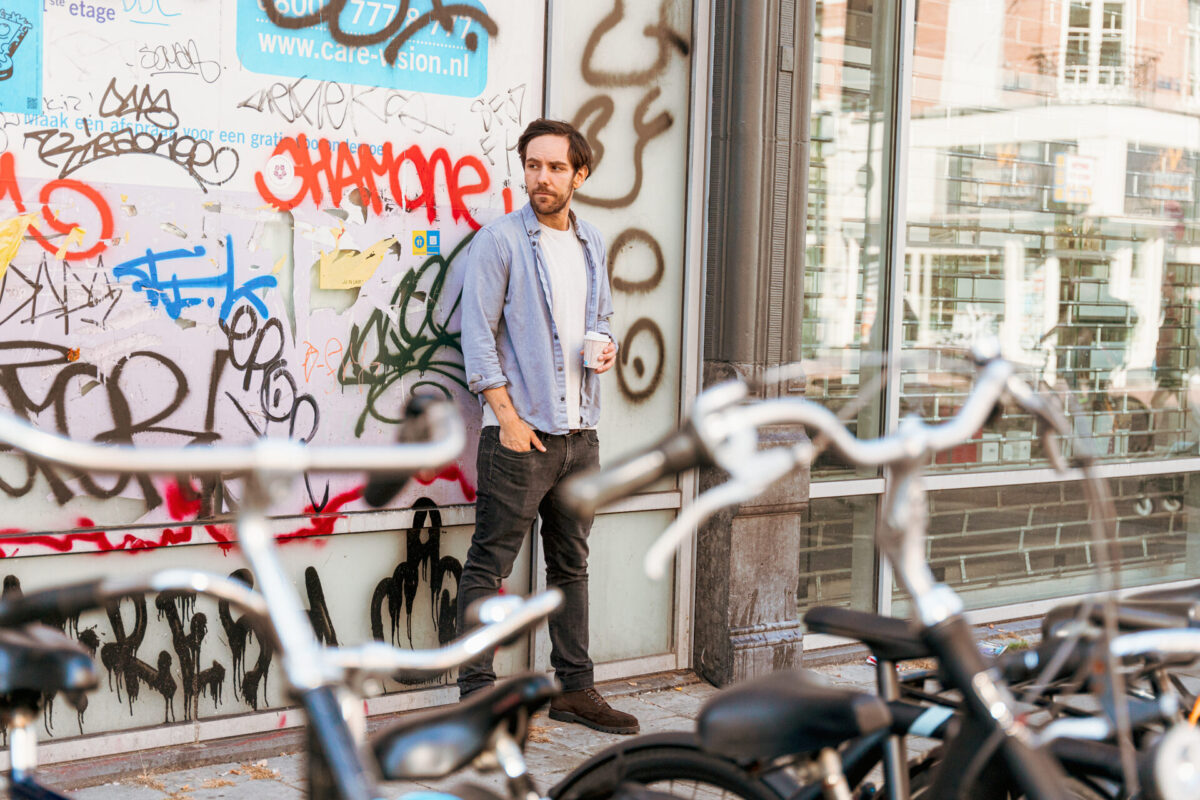
In a world full of opportunities
Samuel makes it his life’s motto to stay open to new people, new ideas and new philosophies. He doesn’t allow himself to take the easy way or to stop learning. He learned how to ride a skateboard 4 years ago when he was 31. A small achievement. But he is proud of it nonetheless.
“Learning new things and adapting to a new environment can be hard as you grow older. But that arouses my curiosity and trains my brain muscle. In that sense, working at TYPICA has helped me grow as a person day by day. I’ve never worked at any company like this before.
Another thing I like about working here is that people treat me as a professional, not as an employee. We all lean on each other’s strengths and complement each other’s weaknesses.”
As a community manager, Samuel strives to become a pillar in the coffee supply chain.
“Some roasters only talk about prices, and there are also those who aren’t really interested in tastes. On the other hand, TYPICA focuses on people. We organize online events where roasters and producers can directly speak with each other.
The important thing is to do more than just introducing coffee, and let roasters know what kind of person the producers are, what goals they have and what their values are. Ultimately, that will help consumers understand the producers better. Sure, TYPICA hosts cupping sessions on behalf of producers and actively engage with roasters. But at the same time, we have to be advocates for producers, too.
Roasters’ days can be so busy that sometimes they lose track of the human aspect of coffee. They can be overwhelmed with cuppings and other schedules and lose sight of the fact that someone is working really hard to grow coffee 10,000 kilometers away.
I think TYPICA can turn this line from producer to roaster to consumer into a circle. TYPICA’s involvement in every step of the coffee supply chain is a more sustainable way.”
“I just love the people in this industry,” Samuel says. He has met people with diverse backgrounds and stories. His horizons were particularly broadened by a London-based roastery that works to resolve social problems. That company runs initiatives to teach roasting skills to those branded as “social outcasts,” such as homeless people and drug addicts, in order to help them to land jobs and turn their life around.
Among the last students Samuel taught in London was a refugee man from Yemen. A civil war in the country had left him jobless and forced him to flee abroad.
“One of the nice things about the coffee industry is that it can give opportunity to struggling people. It’s inclusive and full of opportunities. We have an obligation to make this world more sustainable.”
